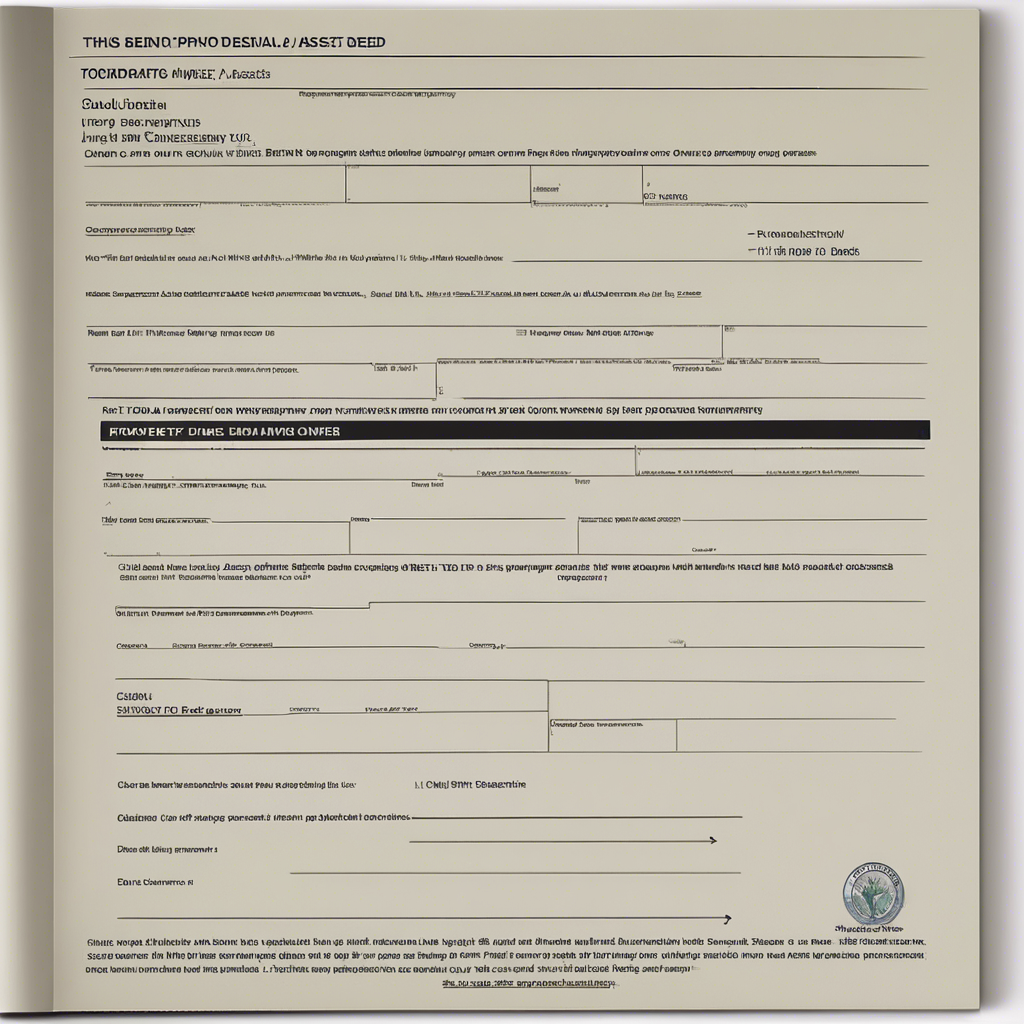
Understanding Transfer on Death Deeds (TOD): A Simplified Guide
- Felice Touchane
- Jul 25, 2024
- 3 min read
Updated: Oct 25, 2025
In the realm of estate planning, navigating the intricacies of transferring assets can be a daunting task. Enter the Transfer on Death Deed (TOD), a legal document that offers property owners a streamlined way to pass on their assets to chosen beneficiaries upon their demise. Let's delve into the world of TOD deeds and uncover how they work to simplify the transfer of property ownership.
The Basics of Transfer on Death Deeds
A Transfer on Death Deed serves as a powerful tool for individuals looking to ensure a smooth transition of their property to loved ones. By designating a beneficiary in the TOD deed, property owners can sidestep the probate process, which can often be riddled with complexities and delays.
How Does a Transfer on Death Deed Work?
In essence, a TOD deed allows the current property owner to retain full control over their assets during their lifetime. However, upon their passing, the designated beneficiary steps into the picture as the rightful owner of the property, bypassing the need for probate court involvement. This aspect of TOD deeds can offer peace of mind to property owners, knowing that their assets will seamlessly transfer to their chosen heir.
Noteworthy to mention, a TOD deed can encompass various types of properties, ranging from real estate holdings to vehicles and financial accounts. This versatility makes it an attractive option for individuals seeking a straightforward means of estate planning.

Document Preparation Services for TOD Deeds
Given the legal nuances involved in creating a Transfer on Death Deed, engaging the services of a professional mobile notary or a document preparation specialist can be invaluable. In Las Vegas, notary services are readily available to assist property owners in crafting a valid TOD deed that adheres to all legal requirements.
Understanding Quitclaim Deeds in Comparison to TOD Deeds
While Transfer on Death Deeds offer a direct route for asset transfer, another common tool in estate planning is the quitclaim deed. Unlike a TOD deed that specifies a future transfer of assets, a quitclaim deed operates by transferring the property owner's interest in the asset immediately to another party without warranties of ownership. Understanding the distinctions between these two types of deeds can aid property owners in making informed decisions based on their unique circumstances.
Finding a Notary Near Me: Securing Your TOD Deed
When contemplating the creation of a Transfer on Death Deed, the proximity of a reliable notary becomes crucial. A quick search for a 'notary near me' can yield a list of reputable notaries who specialize in handling TOD deeds. By enlisting the services of a qualified notary, property owners can ensure that their TOD deed is executed accurately and in compliance with state laws.
In conclusion, the Transfer on Death Deed emerges as a valuable instrument for individuals seeking an efficient and cost-effective way to transfer their assets to chosen beneficiaries. By understanding the workings of a TOD deed and enlisting the assistance of seasoned professionals such as mobile notaries and document preparation services, property owners can navigate the realm of estate planning with confidence.
By embracing the simplicity and effectiveness of a Transfer on Death Deed, individuals can secure the future transfer of their assets while bypassing the cumbersome probate process. If you're considering exploring TOD deeds for your estate planning needs, reach out to a Las Vegas notary or document preparation service to embark on this essential journey of securing your legacy.







Comments